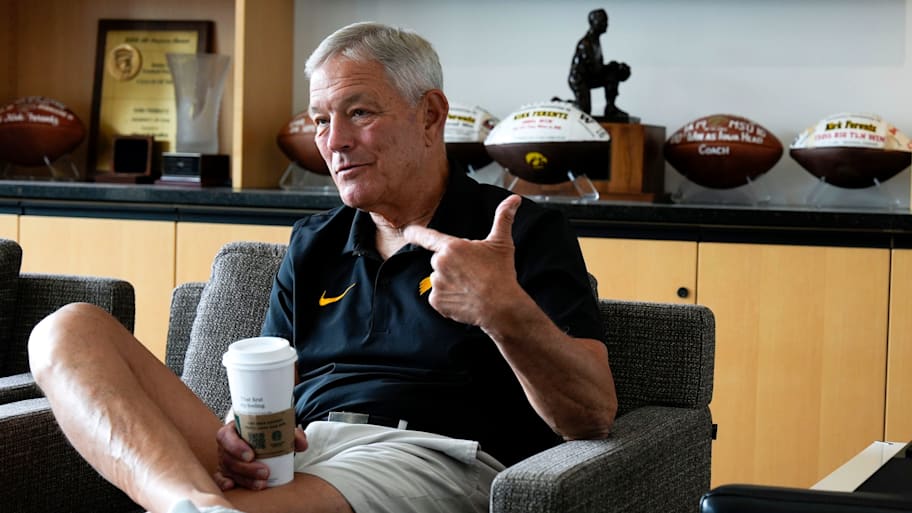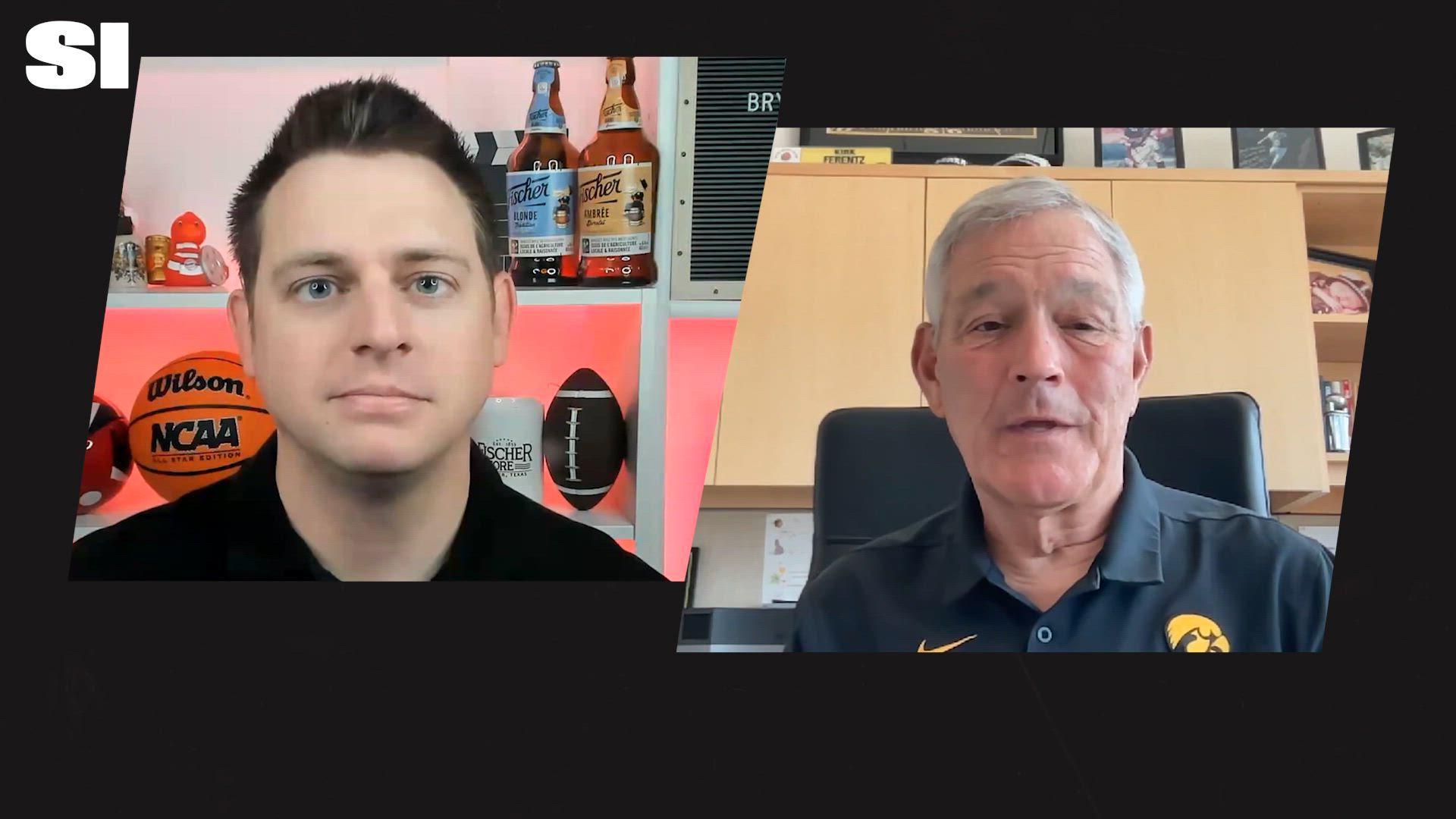

When Kirk Ferentz began his Iowa Hawkeyes head coach tenure in 1999, things were very different in college football.
The BCS picked just two teams to play for the national championship, part of a postseason structure that had only 23 bowl games. A young freshman quarterback named Michael Vick, coincidentally beginning his first season as a head coach himself this year, was about to burst onto the scene for Virginia Tech that fall. The Mountain West had just been formed as a new conference out of a good portion of the old WAC and the Big Ten was only slightly a misnomer with 11 members compared to its current state.
Now, there is a 12-team College Football Playoff, an 18-team conference the Hawkeyes must navigate and, most seismic of all, schools directly paying athletes from their coffers. Through it all, Ferentz has seen and heard plenty entering his 27th season in Iowa City as the longest active FBS head coach at one institution.
“The ironic part is I never had the dream or goal or ambition of being a head coach. That was never on my list. It just kind of happened organically back 20-plus years ago,” Ferentz says. “For me, I’ve never had a dream job, but if there was one, this is probably the only job I would have come back to in college football. It was the only one I would have been interested in.”
Ferentz is opening up and willing to reminisce instead of dancing around the length of his tenure ahead of the conference’s annual media days this week in Las Vegas. Ferentz, who will turn 70 just a few days into fall camp, may be further away from thinking about retirement than he was a few years ago.
“We’re almost proactive on the topic now because you figure certainly in recruiting people are using that against us and maybe other areas, too,” he says. “But my answer on the recruiting front is this, if you’d tried to stake the probability of me being in coaching five years from now, both in 2000 or now, I would suggest the odds are a lot better now than they were in 2000. I can’t really answer the question other than I feel great and this is what I like doing, and I don’t have a real good reason to stop right now.”
Coaches even older are jumping into the game now, including new North Carolina coach Bill Belichick, Ferentz’s 73-year-old former mentor. Belichick brought Ferentz back into the NFL as an offensive line coach with the Browns in 1993.
“Bill is a football purist,” Ferentz says. “I probably didn’t envision him [in college football] because he was a career lifer in the NFL, but he’s also a career football coach and a teacher. And I think that’ll translate really well to the college level. And he’s got [general manager] Mike Lombardi with him who’s handling a lot of the things that maybe, when you’re just thinking about coaching, are the things you don’t want to have to deal with in a prominent way. So, he’s got a great support staff there, and my guess is he’ll do a tremendous job.”
It helps that college football has grown to become more like the NFL to hasten that transition. Still, this year might be the most drastic difference off the field for those like Ferentz with the onset of revenue sharing and changes surrounding NIL with new restrictions on payments to players.
“The football part itself really hasn’t changed in my mind. We still put 11 guys on the field and coaching is still coaching,” he says. “But if you got to go into our staff room now, we’ve got guys sitting around the table, then we’ve got more people around the edge of the room. That’s where the growth has been. However we got here, at least now there’s an attempt to maybe create a structure that’s going to be fair for everybody involved. And you know that’s an ongoing process, too.
“As the revenue grew, it just made common sense, I think, to share that with the people involved. And, a big part of this whole enterprise, obviously the main part of the enterprise, are the players involved.”
That’s also what gets Ferentz fired up: his current team.
The Hawkeyes will be a bit of a dark horse with expectations running higher than normal thanks to the arrival of FCS national title–winning quarterback Mark Gronowski and a depth chart stuffed full of veterans who understand the culture Ferentz has instilled.
“I don’t know how good we are right now, and we’ll find that out this season, but I like the way the guys have approached things—and this goes back to January when we started getting together,” Ferentz says. “Then we added guys in the portal, a couple guys joined the team, and then a new group of guys in incoming freshmen that weren’t here early joined us in June. So along each step of the way the team’s changing, it’s growing. This team’s got a good vibe. I think we’ve got really good leadership, probably surprisingly good considering some of the guys we’ve lost over the last two years. But it’s a good group of guys and just anxious to see how it all pulls together.”
After five top-10 finishes, a pair of Big Ten titles, 22 bowl appearances and more than a handful of stars, Ferentz is in the same spot as his peers in wondering just how good, bad or indifferent his team will be. Even the dean of college football coaches seems to have that same sort of anxiousness in the weeks before kickoff just like he did back when he first took over at Iowa.
“Dean’s kind of a funny term. It’s an academic term, but I always think of the movie Animal House when I hear 'dean,'” jokes Ferentz, who recently was named chair of the Big Ten coaches during conference meetings. “So, I’m not sure that’s a good thing either, but I’ve just been around a while.”
Through enough change in college football to fill several tenures, Ferentz certainly has been around.
This article was originally published on www.si.com as One on One With Kirk Ferentz: Iowa Coach Talks Retirement, Bill Belichick, College Football Changes.







